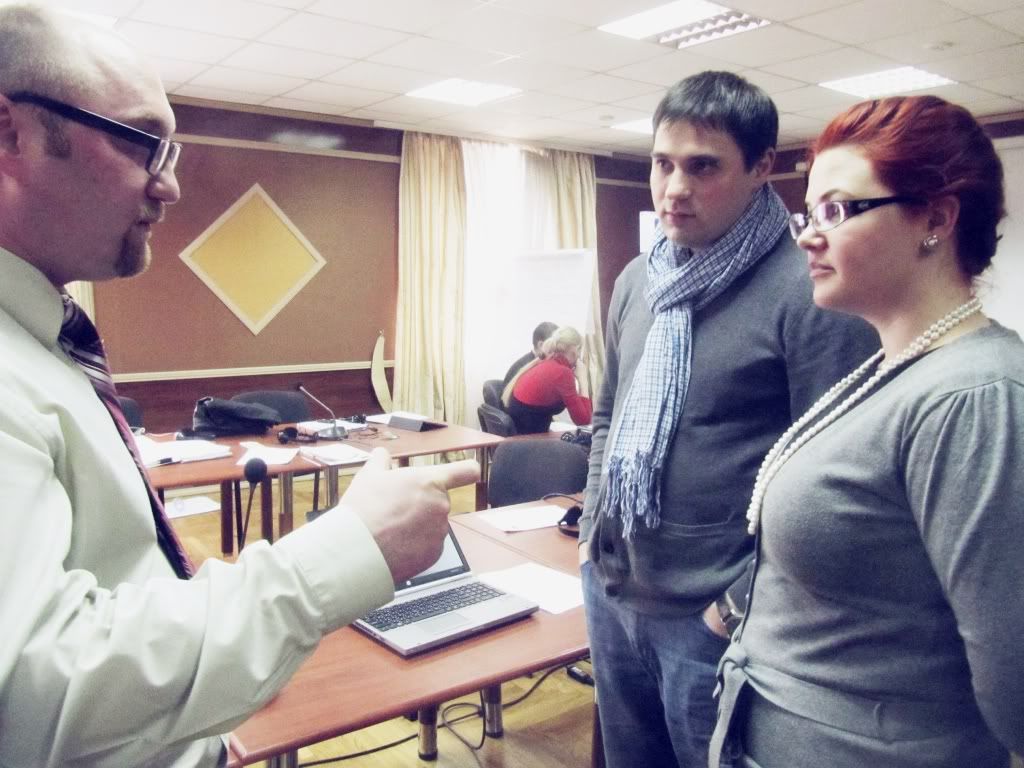MDAC trains Moldovan human rights monitors

30 March 2012, Budapest. MDAC has been in Chisinau, Moldova for the past four days, where it delivered a training session on how to prevent torture and ill-treatment against people with disabilities by monitoring the rights of detainees in psychiatric and social care institutions. Participants included representatives of the Ombudsman Office (the Center for Human Rights), the National Preventive Mechanism, and Non-Governmental Organisations.
In Moldova’s psychiatric and social care settings people with psycho-social disabilities and people with intellectual disabilities are often detained and treated with psychiatric interventions without their consent. These institutions often resemble cramped warehouses, where mechanical, physical and chemical restraints are commonly imposed on people, and the concept of consent is not understood by staff. It is therefore impossible to distinguish the care and treatment of those who are detained legally (although not necessarily justifiably) under mental health legislation, and those who are there ‘voluntarily’. Many residents of social care institutions have been stripped of legal capacity, and under guardianship they are denied information on what is happening to them. They are denied access to legal systems in which they could complain.
In August 2007 the European Court of Human Rights found that the applicant in the case of David v Moldova had been admitted to a psychiatric hospital ‘voluntarily’, but as he was refused permission to leave afterwards the Court found a violation of his rights. In October 2011 the same Court found that the applicant in Gorobet v Moldova was involuntarily and unlawfully detained in a psychiatric hospital for 41 days, and as a result he suffered severe mental suffering, which amounted to inhuman and degrading treatment, which is prohibited by international human rights law. The European Committee for the Prevention of Torture has widely documented human rights abuses in Moldovan psychiatric facilities.
As part of the four-day training, participants carried out an inspection in one of Moldova’s psychiatric hospitals. Participants compiled a report, which will be published shortly on MDAC’s website. The report will be submitted to the management of the institution, as well as the relevant ministries, regional and international bodies working at the intersection of torture and ill-treatment and disability.
Moldova has ratified the Optional Protocol to the UN Convention against Torture (OPCAT), so the country must set up a domestic monitoring mechanism which regularly visits places of detention, including facilities where persons with disabilities are deprived of liberty. Moldova also ratified the UN Convention on the Rights of Persons with Disabilities in 2010. The UN Subcommittee on Prevention of Torture will carry out a visit to Moldova later this year in an effort to strengthen the monitoring mechanism. In addition, legal capacity law reform is currently being considered to bring antiquated laws into compliance with the Convention, a process on which MDAC is advising the local UN office and other stakeholders.
The training followed up on MDAC’s initial training session in December 2010, and was conducted held by the MDAC staff experts and consultant Stephen Klein, an inspector of UK mental health facilities since 1995. MDAC’s costs were covered through a grant from Zennström Philanthropies. The training was co-organised with the ‘Strengthening the Forensic Examination of Torture and other Forms of Ill-treatment in Moldova’ project, funded by the European Union and co-funded and implemented by the United Nations Development Programme, and the UN Human Rights Adviser which is delegated by the Office of the United Nations High Commissioner for Human Rights to the Office of the United Nations Resident Coordinator in Moldova.

